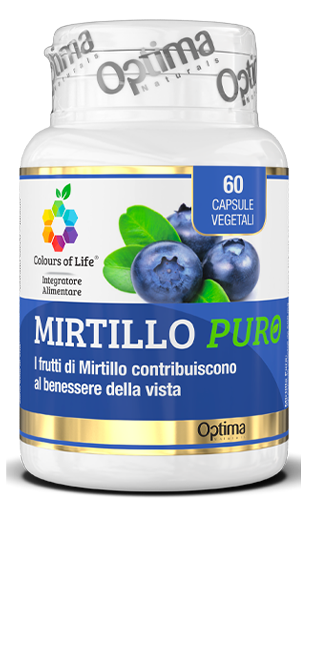BLOG
Useful tips for eye well-being

Caring for your eyes
The eyes are a complex and at the same time delicate sense organ. They collect and process information 24 hours a day.
That is why it is necessary to protect and care for them in order to avoid disorders caused by overwork, unfavourable external conditions such as dry air, dust, excessive light, physical stress and an irregular lifestyle. It should also be noted that eye disorders can increase with age.
The most common complaints are dry, swollen, reddened or excessively watery eyes.
Nutrition for healthy eyes
Let's start with nutrition.
Some foods are real allies for the eyes:
- Cabbage, chard and spinach, eggs and maize provide lutein and zeaxanthin, carotenoids with antioxidant properties present in the retina. They help protect the eyes from the blue light emitted by electronic devices.
- Apricots, oranges, persimmons, carrots, tomatoes, watermelon, red fruits and all orange-yellow or red vegetables are sources of vitamin A, which helps to keep the photoreceptors in the eyes healthy. Vitamin A is also found in green vegetables, eggs and liver.
- Fruits and vegetables rich in vitamin C: oranges, lemons, kiwis, papaya, tomatoes, broccoli, peppers. Vitamin C can have a protective effect on eye disorders, particularly in the case of cataracts.
When can an eye supplement be useful?
In all those situations in which the eyes experience fatigue, a burning sensation and dryness with poor tearing, with a slight decrease in visual capacity, it may be useful to use a food supplement. One particularly suitable remedy is the bilberry.
These fruits provide nutrients, including anthocyanins which, according to a study reported at the end of the article, have beneficial effects on eye wellbeing in general but are also useful for the treatment of both myopia and glaucoma.
Anthocyanins also have antioxidant, cardioprotective and anti-inflammatory properties; they act by improving blood flow in microvessels, leading to an improvement in peripheral areas.
Good habits for the well-being of the eyes
The wellbeing of the eyes also depends on a few healthy habits that help prevent various eye disorders:
- use electronic devices such as smartphones, tablets and PCs by taking frequent breaks to rest your eyes, possibly closing them for a few seconds and observing nature in the open air for a few minutes.
- check the humidity in the room and if necessary use a humidifier to avoid excessive dryness of the eyes,
- protect your eyes from excessive sunlight in summer with quality sunglasses,
- adopt a balanced diet with proper daily hydration,
- carry out daily eye exercises: remember to blink to alleviate dry eyes; practise looking at an object far away and then at one very close up; take a few minutes to shift your gaze in all 4 cardinal directions; rub your palms together and once warmed up spoon them over your closed eyes to relax the whole eye area.
Sources and insights
- Pubmed, Epidemiologic evidence of a role for the antioxidant vitamins and carotenoids in cataract prevention
- Pubmed, Therapeutic Effects of Anthocyanins for Vision and Eye Health
The advice is for information only and should not replace medical assistance. Please consult a doctor or health care professional before trying any remedies.
PURE BLUEBERRY









 Optima Naturals S.r.l. ® Via Sempione 124, 21029 Vergiate (VA)
Optima Naturals S.r.l. ® Via Sempione 124, 21029 Vergiate (VA)